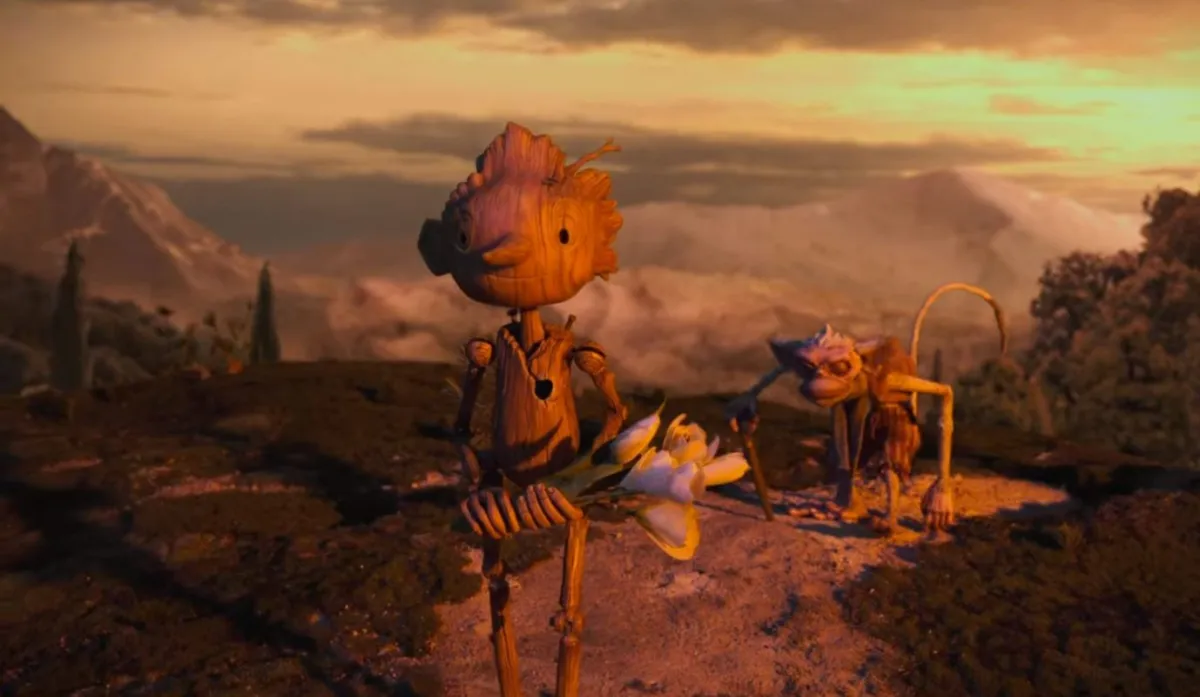In an interview with Decider for the release of Pinocchio, Guillermo del Toro responded to a question about the controversy regarding AI art stealing from and cutting artists out of the process. This is likely a question prompted by many creatives, especially recently. However, del Toro’s weight is extra impactful as one of the most beloved directors in the world. Also, he’s an artist who, while he does favor certain mediums (as we all do), is supportive of all craft, from 2D to 3D and physical to digital.
When asked, “Have you been following that at all, and how do you feel about it?” del Toro responded,
I think that art is an expression of the soul. At its best, it encompasses everything you are. Therefore, I consume and love art made by humans. I am completely moved by that. I am not interested in an illustration made by machines and the extrapolation of information. I talked to Dave McKean, who is a great artist. And he told me, his greatest hope is that AI cannot draw. It can interpolate information, but it cannot draw. It can never capture a feeling, or a countenance, or the softness of a human face, you know? Certainly, if that conversation was being had about film, it would hurt deeply. I would think it, as [Hayao] Miyazaki says, “an insult to life itself.”
Years before AI art would really boom, the legendary Japanese animator Miyazaki was presented with an AI animation and was disturbed by what he saw. The 2016 presenters talked about how it could be used to replicate zombies in a game. After Miyazaki explained that he has a friend with a severe physical disability, he said, “Whoever created this has no idea what pain is whatsoever.” The director was not moved by using disability as something to be horrified of as a good use of this technology.
When pressed on what other purpose this AI could serve, the programmers stated that it could be used “[to draw] pictures like humans do.” In what I can only imagine to be the most embarrassing moments of the presenters’ lives, Miyazki said, “I feel like we are nearing to the end of the times. We humans are losing faith in ourselves…”
Both Miyazaki and del Toro are not just revered for their craftsmanship but for their ability to tell big stories in a way that encapsulates the human experience. Humanity comes first, and art reflects that and people’s perspectives. That loss of humanity isn’t a theory, and this technology (like most emerging tech) has more harmful implications for marginalized groups that are already dehumanized without needing tech to streamline the process.
Many have pointed to how these AI creations have been used to give people more Eurocentric features and women are more sexualized (including children), and some have compared the use of some to AI minstrelsy. This is not even the first time this has been a discussion this year if anyone remembers the AI rapper that was a new form of digital Blackface.
Unfortunately for del Toro, Miyazaki, and others, AI film is on the horizon as some are already using it to make music videos, and I’m served AI-created advertisements on my personal and art Instagram daily now.
In case you’re keeping track of the temperature in the room on AI:
(via Decider, featured image: Netflix)
—The Mary Sue has a strict comment policy that forbids, but is not limited to, personal insults toward anyone, hate speech, and trolling.—










Published: Dec 21, 2022 9:52 PM UTC